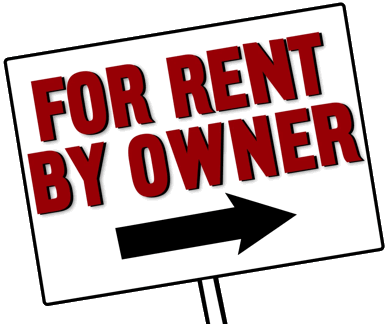The first house I bought cost me about two dollars. It was priced in Indian rupees. I don’t remember the exchange rate in 1973, but I’m pretty sure I paid about two bucks for it. The house was a pole structure with a sand floor, sided and roofed with bamboo and banana leaves and nicely located on a beach in Goa. I lived in it for a few days, then sold it for about a dollar before striking out south along the beach. I worried for a long time – at least a few hours – that I had either paid too much for it or sold it too cheaply. I don’t remember anything about either transaction, but I probably did my best to maximize value on both ends. So using best efforts I lost about half of my investment in less than a week.
Unfortunately, this was the beginning of a pattern.
The next place I bought was a co-op apartment on the upper west side of Manhattan (click here for Manhattan Homes for Rent). It was a two-bedroom, two-bath unit in a newly renovated building, one of the first in a neighborhood that is now nothing but co-ops in renovated buildings. I was the first owner and it felt really good to live in a brand new apartment with new oak parquet floors, new walls, ceilings and windows, new counters, plumbing, wiring and appliances, and a nice view of the Hudson. It might have had old cast iron radiators, but in all other respects it was quite unlike the four or five rental units in which I had lived over the preceding several years.
I think I paid about $170,000 for this place. Pretty soon I had a subtenant living in my second bedroom. She was an Israeli ballet dancer, friend of a friend, and I wondered what I would do if she ever failed to pay the rent. It would be difficult to evict her, both for social reasons and because it was an illegal sublet. As it turned out, that never became an issue. After owning the unit for a few years, I left New York for a job in Colorado (click here for Houses for Rent in Colorado), my subtenant continued to occupy the apartment and pay me rent, and it was the co-op board that became the problem. Somehow they found out that the unit was no longer owner-occupied and began writing me threatening letters. I can’t remember their legal theory, but I had put the unit up for sale and assumed it would be sold, they would approve the buyer and my subtenant would be gone before matters came to a head.
I wasn’t too concerned about maximizing my value on the sale. My relocation deal included making up any loss on the sale of my old residence. I listed the property for sale at about what I paid for it (what I was told it was worth) and pretty soon I had a full-price offer. Then I had an even higher offer. But when I told the first broker that I intended to accept the higher offer he said he had earned his commission by bringing me a full-price offer and would sue me if I sold to someone else. I caved, sold it to his client and recovered whatever loss I suffered, including the sales commission, from my new employer.

Lower Manhattan from Brooklyn Panorama
I still had a lease on another apartment in New York, a rental unit in a pretty fancy building near the United Nations, and when I bought this one I sublet the other one to a lady friend for a few hundred dollars more than I was paying. (The building appears to have been converted to “condops” now and my unit seems to be listed for $850,000.) But this one too became an illegal sublet problem. Fortunately I knew someone who knew the owners and they finally agreed to let my friend stay there under a new lease at the same rent she was paying me. So I was cut out of the deal, but at least my friend got a nice apartment. She may still live there.
Next was a house in Denver (click here for Homes for Rent in Denver). I bought it in 1982 just before the oil market crashed and houses in Denver became much less valuable than they had been a few months earlier. My new employer provided me with a real estate agent as part of my re-lo deal, and after the agent had driven me around for several days I asked him if there wasn’t a city here, an urban center. He informed me that this was the urban center. It didn’t look very urban to me: just single-family houses with front lawns, backyards and on-street parking. Finally he drove me into the downtown to look at high-rise apartments. (They must have been condominiums. Only New York has co-ops, I think.) This looked more like what I had in mind. But when we passed buildings that seemed perfect for lofts he said, “You can’t live there. Those are commercial buildings.” (Of course they’ve all been converted into residential lofts since then.)
So in the end I bought a bungalow with a front lawn, backyard and on-street parking. It was nice. It was in a pleasant neighborhood, had two fireplaces, and a cherry tree and very productive plum tree grew in the backyard. I lived there for about two years and had lot of ideas for improvements: an addition to the back, a second story, turning the unused garage into a carriage house. Then my step-brother-in-law visiting from the East asked me why I would consider spending that much money on improvements to this house rather than just buying a new one. Of course he was right. I sold the house for about what I had paid, probably losing about $25,000 on real estate commissions and the cost of the improvements I had made.
I considered keeping that house and renting it out, but decided it would be too much trouble. I would have to worry about collecting the rent, paying the mortgage, and paying the taxes, as well as the possibility that the tenant would trash the place. So I sold it at a loss and bought a place in the country.

Downtown Denver Skyline
While living in Denver I made at least three low-ball offers on other places. Two were ski houses in Vail (click here for Vail Homes For Rent) and one was a really nice condo right in the middle of downtown Denver. All of the sellers countered with offers much closer to the asking price and, after a little more back and forth, things kind of petered out. I now realize that, given the almost incredible rise in real estate prices in both Vail and Denver, any of those places would have been a good investment at twice the price. Oh, well. Win some, lose some.
So I have lived in my country house for over thirty years. The value of my property is about five times what I paid for it, and the vacant land next door just sold for exactly five times its offering price at the time I arrived. Maybe I should have bought it. Maybe a fivefold increase over thirty years is nothing to get excited about. I’m too lazy to do the math.
Bottom line: I never made money in real estate. I could have made money had I been less cautious and gone ahead with some of the deals I started. But I could have bought McDonald’s, Microsoft or Facebook, too. The root of my caution is probably something my father told me when I was barely old enough to understand. He said that during the Great Depression houses became worthless, literally worthless, because no one had any money. He also said that there was no difference between betting on real estate and betting on stocks or anything else: you might pick a winner and you might pick a loser.
I have since learned a little more about real estate investing, some of the unique benefits, and might now do things differently. I may yet. Now that I’ve set down this history I guess the next time I write I will try to say what I’ve learned.
— Dan Danser, January 2020

Street View, Vail Colorado
PHOTO CREDITS
Goa India
Aleksandr Zykov, Arambol Goa India, CC BY-SA 2.0
Manhattan
King of Hearts / Wikimedia Commons / CC-BY-SA-3.0, Lower Manhattan from Brooklyn May 2015 panorama, CC BY-SA 3.0
Denver
Flickr user: Larry Johnson https://www.flickr.com/people/drljohnson/, Denver skyline, CC BY 2.0
Vail
Daderot, Vail, Colorado - street view, marked as public domain, more details on Wikimedia Commons




